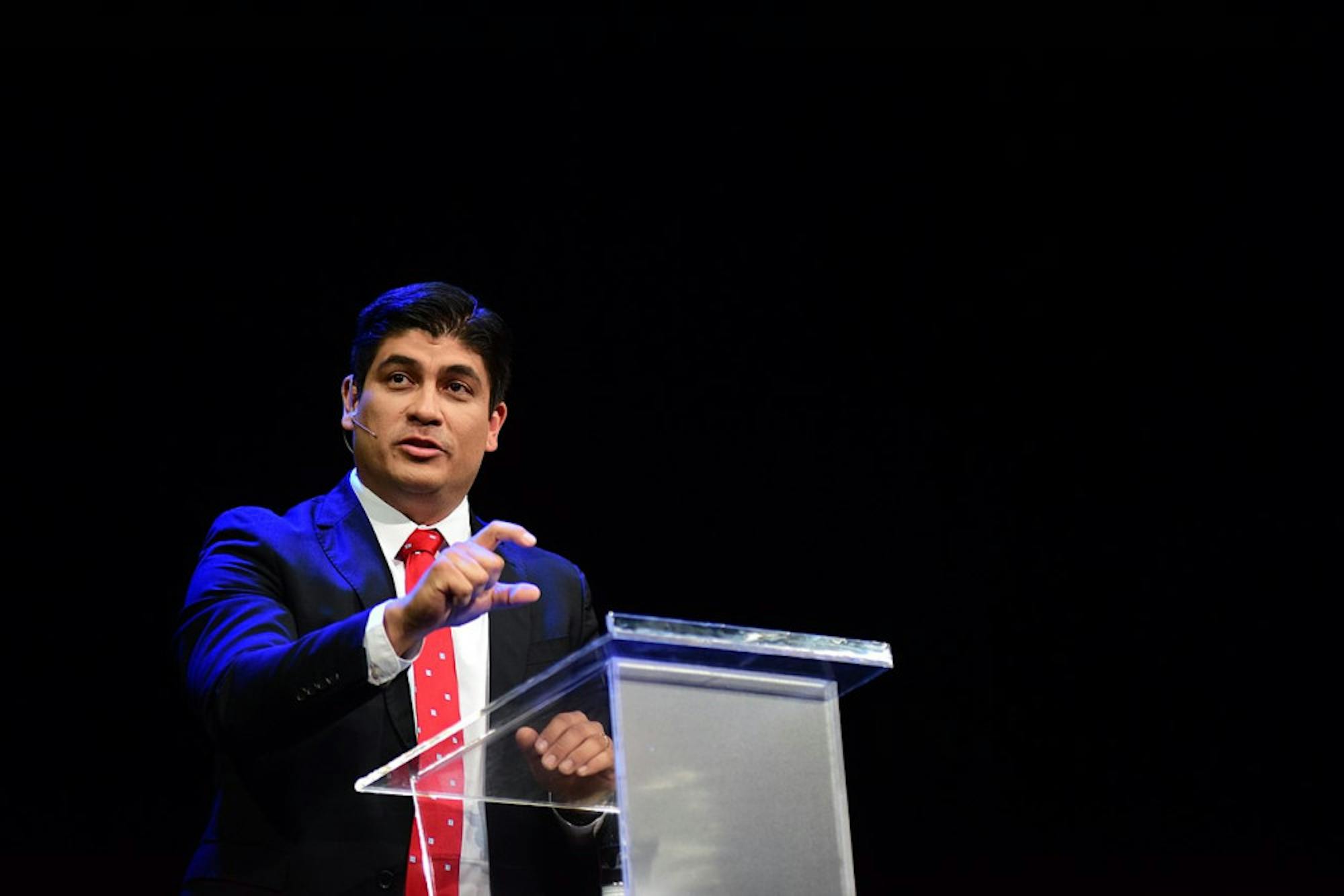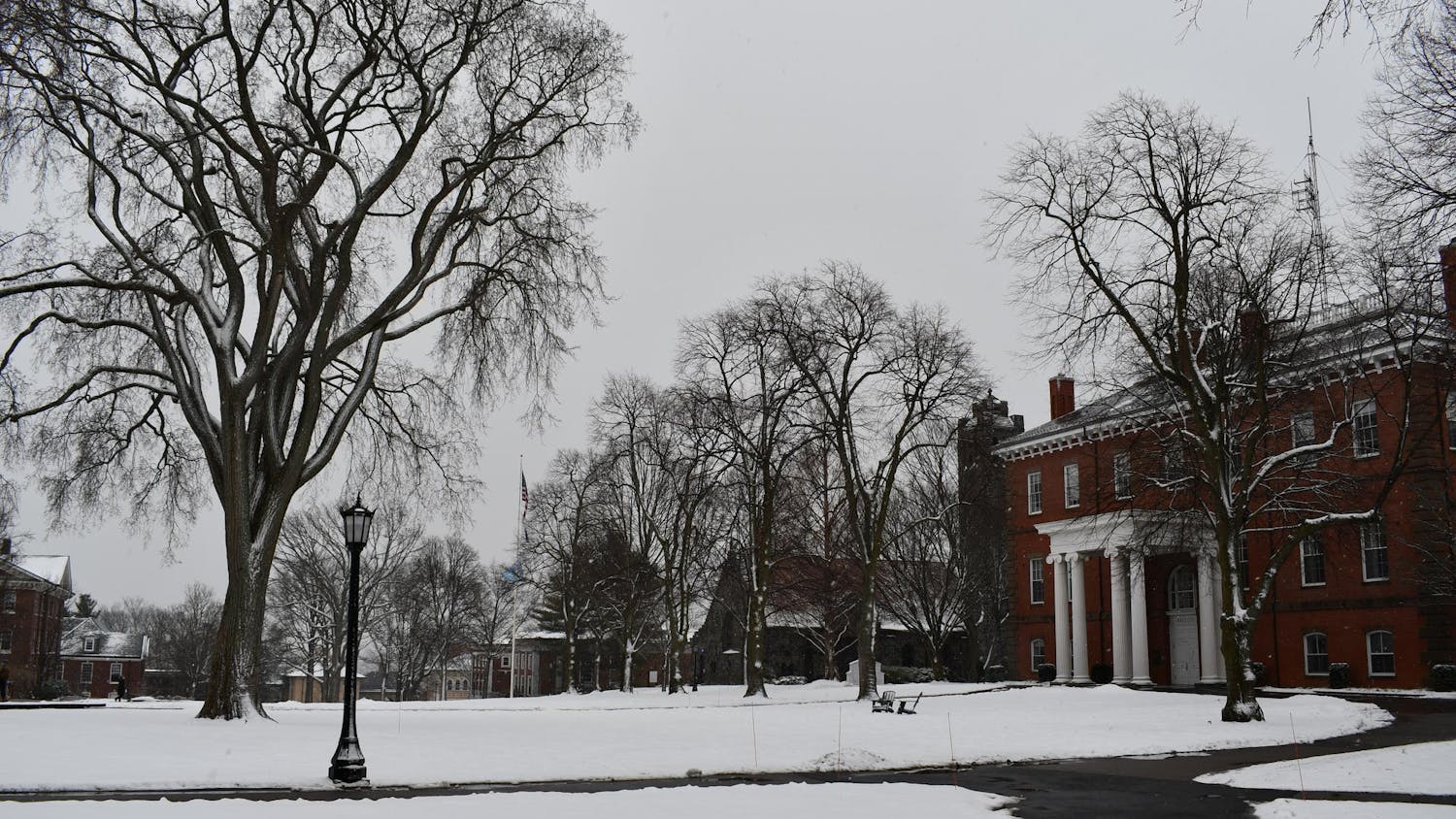Jonathan M. Tisch College of Civic Life and The Fletcher School hosted a conversation with former President of Costa Rica Carlos Alvarado Quesada on Feb. 15. Moderated by Alnoor Ebrahim, professor of management at Fletcher and Tisch College, the event focused on the critical role of small countries in the climate crisis, given that conversations about climate change are typically dominated by larger nations.
Ebrahim kicked off the event by praising Quesada for his commitment to climate change mitigation efforts. Quesada has received a number of accolades for his work toward climate justice, including the National Geographic Society’s “Planetary Leadership Award” and the U.N. Environment Programme’s “Champion of the Earth” award and is now a professor of practice of diplomacy at Fletcher.
“He has been an inspiring example of how political leaders can pursue effective governance while championing nature. … As president, he demonstrated how a small state like Costa Rica can work to find solutions for global crises when large countries will not or cannot,” Ebrahim said, quoting Fletcher Dean Rachel Kyte.
Ebrahim explained how Costa Rica has emerged as a global leader in tackling the effects of climate change. The goal of the event, he said, was to explore how other small states can follow its lead.
“Four years ago, Costa Rica launched its National Decarbonization Plan, which was really the first of its kind under the Paris Agreement,” Ebrahim said. “Many countries still have not launched theirs. So here’s a small state taking action on the global stage.”
Quesada spoke to Costa Rica’s ability to lead by example.
“We are a nation without a huge gross domestic product, but our standards of health are of a developed country. We have the highest ratio of investment in health and the results,” he said. “That shows the power of example. … When [the decarbonization plan] came out, nationally it was not so powerful … but internationally it had a huge impact, because we were the bicycle on the five lane highway.”
Quesada explained that, as a small unit of power, Costa Rica is often perceived as having minimal influence over combating climate change, especially compared to its more powerful counterparts such as China and the United States. However, these doubts have only fueled Quesada’s commitment to climate justice.
“Whenever [someone says] it’s impossible, you’re on the right track,” he said.
Costa Rica has a long history of contributing to the battle against climate change. In 2007, the U.N. published a piece on the country’s commitment to eliminating their global carbon footprint, quoting former President of Costa Rica Óscar Arias: “We do this with the hope that, eventually, we will be able to show the world that what ultimately needs to be done, can be done.”
Quesada pursued this mission during and after his own presidency. Throughout his time in office, he focused on decarbonizing Costa Rica’s economy, setting a goal for the country to achieve net zero emissions by the year 2050. His administration also launched the High Ambition Coalition for Nature and People, a group of over 100 countries that aims to protect at least 30% of the world’s land and ocean by 2030.
According to Quesada, courageous leaders in areas such as climate change practice empathy and avoid feeding into polarization.
“I do believe there’s a power in empathy, not to gain power itself but for a larger end, which has to do with reaching out to the other. There’s a lot of ‘us and them’ going on right now,” he said. “Getting into an empathy position means renouncing … power. … Polarization, I think it’s a very dangerous game.”
Before taking questions from the audience, Quesada explained his plans to help develop the small state diplomacy work done at Fletcher by creating a class on asymmetrical diplomacy.
“[We are working with Fletcher] to train diplomats from small countries … in several topics of the environmental agenda,” he said. “[We are working] not only to train them, but to create cohorts … networks of change [and] networks of empathy.”






